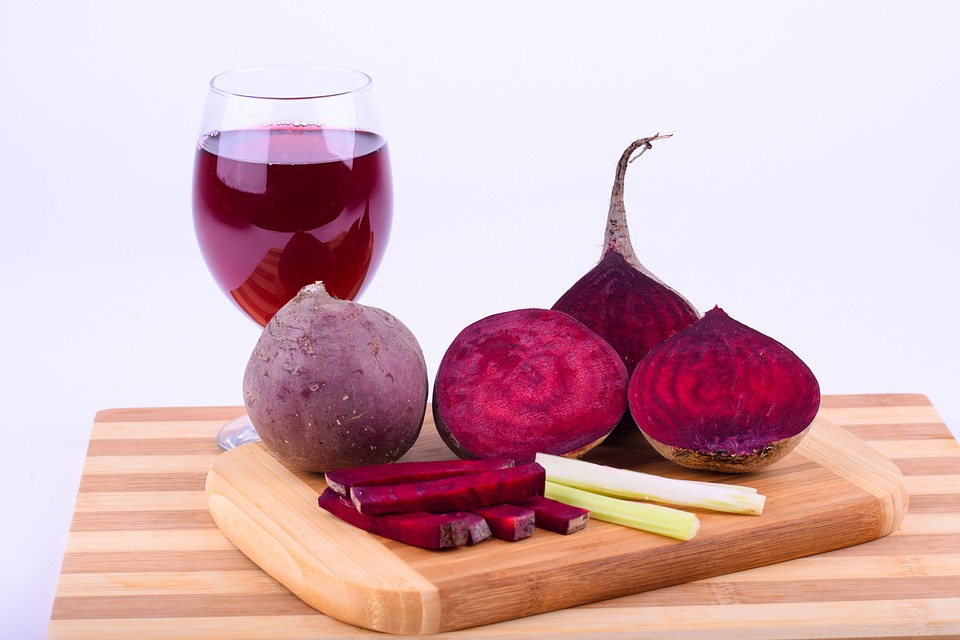Introduction
Beetroot, often hailed as a superfood, is not only vibrant in color but also in its nutritional value. This root vegetable is full of a powerful punch when it comes to health benefits. From boosting athletic performance to promoting heart health, it offers a wide range of advantages for those who incorporate it into their diets.
What Makes Beetroot a Superfood?
Nutritional Composition of It.
Beetroot is rich in essential nutrients, including vitamins A, C, and K, as well as minerals such as potassium, magnesium, and iron. It is also high in dietary fiber and contains potent antioxidants like betalains, which contribute to its vibrant color.
Health Benefits of it.
The health benefits of beetroot are numerous. It can help lower blood pressure, improve digestion, and boost immune function. Additionally, it has anti-inflammatory properties and may even enhance cognitive function.
How to Incorporate Beetroot into Your Diet
Delicious Recipes Using Beetroot
From salads to smoothies, there are countless ways to enjoy beetroot in your meals. Try adding roasted beetroot to salads for a burst of flavor or blending it into a refreshing juice with apples and carrots.
Tips for Buying and Storing Beetroot
When purchasing beetroot, look for firm, unblemished roots with vibrant greens attached. Store them in the refrigerator and use them within a week for the best flavor and texture.
Beetroot: A Natural Performance Booster
Beetroot for Athletic Performance
Athletes have long turned to beetroot juice as a natural performance enhancer. Its high nitrate content helps improve oxygen delivery to muscles, leading to increased endurance and reduced fatigue during exercise.
Beetroot Juice for Enhanced Stamina
Drinking beetroot juice before a workout or athletic event has been shown to improve stamina and exercise efficiency. Its ability to increase blood flow and oxygen uptake can help athletes perform at their best.
Beetroot: A Versatile Ingredient
Culinary Uses
Beetroot is a versatile ingredient that can be used in both sweet and savory dishes. It adds depth of flavor and a vibrant hue to soups, stews, and sauces, and can even be used to make desserts like beetroot brownies or cakes.
Beetroot in Beauty and Skincare
Beyond the kitchen, beetroot has found its way into the world of beauty and skincare. Its natural pigments are used in cosmetics, while its hydrating properties make it a popular ingredient in skincare products.
Potential Risks and Precautions
Side Effects of Excessive Consumption
While beetroot is generally safe for most people, consuming large amounts may lead to beeturia, a harmless condition that causes red or pink urine. may individuals experience digestive issues or allergic reactions.
Precautions for Certain Medical Conditions
Individuals with kidney stones or those taking blood pressure medication should exercise caution when consuming beetroot, as it may interact with certain medications or exacerbate existing health conditions.
FAQs
1. How often should I consume beetroot?
Consuming beetroot in moderation is recommended for most individuals. Including it in your diet a few times a week can provide you with its beneficial nutrients without overdoing it. However, if you have any specific health concerns or medical conditions, it’s best to consult with a healthcare professional for personalized advice on beetroot consumption frequency.
2. Can beetroot help with weight loss?
It can be a helpful addition to a weight loss diet due to its low calorie and high fiber content. The fiber in this helps promote feelings of fullness and aids in digestion, which can contribute to weight management. Additionally, this is naturally sweet, making it a satisfying and nutritious alternative to sugary snacks.
3. Can beetroot lower blood pressure?
Yes, beetroot has been shown to have blood pressure-lowering effects due to its high nitrate content. Nitrate, found abundantly in beetroot, is converted into nitric oxide in the body, which helps dilate blood vessels and improve blood flow. Regular consumption of beetroot or beetroot juice may help lower blood pressure levels, particularly in individuals with hypertension.
4. Does beetroot interact with medications?
It may interact with certain medications, particularly those used to treat high blood pressure or erectile dysfunction. It contains high levels of nitrates, which can enhance the effects of medications that dilate blood vessels, potentially leading to a sudden drop in blood pressure. If you are taking any medications, it’s important to consult with your healthcare provider before consuming this root regularly.
5. Can beetroot improve athletic performance?
Yes, this root has gained popularity among athletes for its potential to improve athletic performance. The nitrates in vegitable can enhance exercise efficiency by increasing oxygen delivery to muscles, leading to improved endurance and reduced fatigue during physical activity. Many athletes consume beetroot juice before workouts or competitions to reap these benefits. However, individual responses may vary, so it’s recommended to experiment with beetroot intake and monitor its effects on performance.
Conclusion
In conclusion, beetroot is indeed a nutrient-rich superfood with a multitude of health benefits. Whether you’re looking to boost your athletic performance, improve your heart health, or simply add more variety to your diet, beetroot is a versatile ingredient worth incorporating. With its vibrant color and delicious flavor, beetroot is sure to become a staple in your kitchen.
